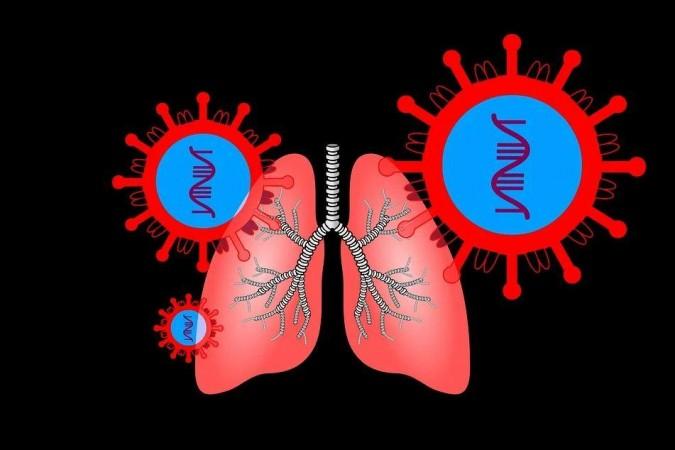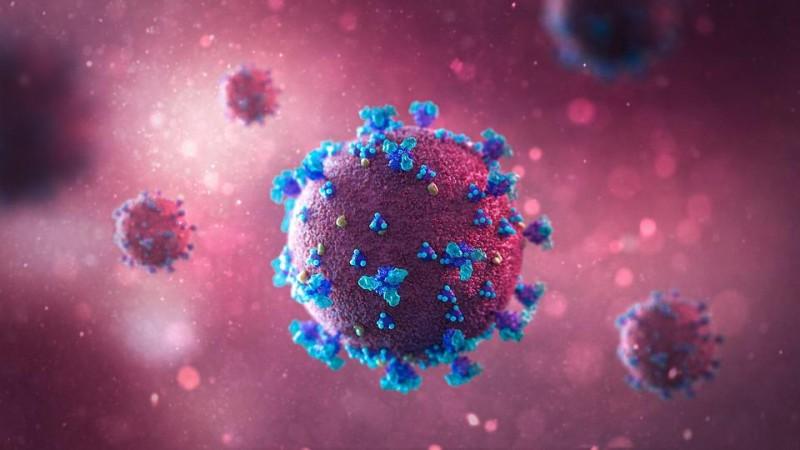Surviving COVID-19 and returning to a 'normal' life is nothing short of a miracle for some. Unfortunately, scores of survivors across the world have been battling lingering symptoms of the infection, known as 'long-COVID'; characterized by symptoms such as brain fog, respiratory complications, and cardiac problems, among others. Now, scientists have found that the SARS-CoV-2 virus can affect male fertility by causing changes in the levels of proteins in the semen.
According to a new study, there were significant changes in the levels of proteins in the semen of men who had recovered from COVID-19. It was gleaned that the levels of key fertility-related proteins were less than half the normal quantity in the semen of these men. Thus, the findings suggest that even a moderate or mild form of the disease may potentially alter the levels of proteins associated with male reproductive function.
"It sheds light on the significant alteration of reproductive function at the molecular level and identifies several dysregulated proteins and pathways associated with the reproductive process," wrote the authors. The research was published in the journal ACS Omega.
Assessing COVID's Effect on Fertility

The SARS-CoV-2 virus is known to affect the respiratory system mostly. However, the pathogen, and the body's immune response to it, can cause damage to other organs and tissues. Recent studies have suggested that COVID-19 affects male fertility and evidence proving the invasion of the male reproductive organs by the novel coronavirus has also been found.
Therefore, the authors sought to ascertain whether the COVID-19 infection could result in long-term effects on the male reproductive system. They decided on a method to find the answer to their question: compare the levels of proteins in the semen of men who previously suffered from mild or moderate COVID-19, with that of healthy men.
Changes in Protein Levels
For the study, the team examined semen samples from 27 men: 17 men who had recovered from COVID-19 recently and a control group of 10 healthy men. Their ages ranged from 20 to 45 and none of them had a prior history of infertility. They learnt that when compared to the healthy controls, men who had recovered from the disease had a considerably decreased sperm count and motility. Also, the latter had lesser normally-shaped sperm.

When the sperm proteins were subjected to liquid chromatography-tandem mass spectrometry, the team noticed that the levels of 21 proteins were lower and 27 proteins were higher in men who had recovered from the viral infection when compared to that in the control group. Importantly, several of these proteins were those that are actively involved in reproductive function.
Downregulation of Key Pathways
According to the researchers' analysis, several crucial pathways associated with reproductive functions were downregulated in patients who had recovered from COVID-19. The reproductive functions included adhesion regulation, cell motility regulation, endopeptidase activity, extracellular matrix adhesion, sperm–oocyte recognition, and testosterone response.
The targeted approach of the scientists led to a crucial revelation: two proteins related to male fertility—semenogelin 1 and prosaposin—were found at levels lower than half the normal range in the semen of the men who had been infected with the SARS-CoV-2 virus. Thus, the discovery suggests that the virus may have a direct or indirect bearing on male reproductive health; lingering even after patients make a complete recovery from COVID-19.

Also, the findings of the study may provide a deeper understanding of the pathophysiology of human reproduction in men who have recovered from the coronavirus infection. However, the authors added that studies of a larger scale must be conducted to in order to confirm their findings conclusively.
"Hence, to understand fertility-related biological processes triggered by this infection, a protracted evaluation of the consequences of COVID-19 in recovered men is warranted," the authors wrote. They also suggested that a control group of men who have recovered from other flu-like sicknesses must be included in order to determine whether these learnings are specific only to COVID-19.

















